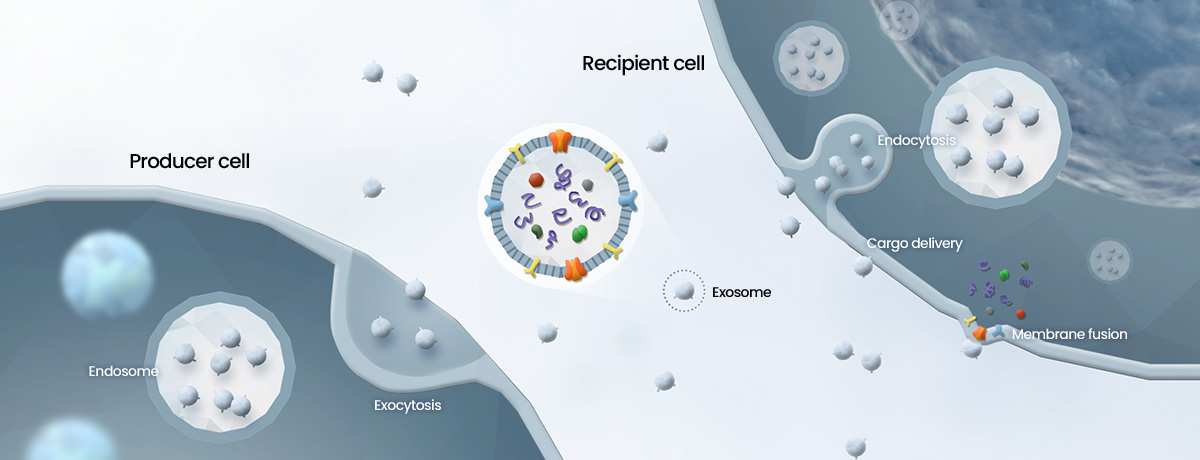- home
- Our Science
- Exosomes
- Platform Technology
- Manufacturing
- SAB
- Publications
- Patent
Exosomes

About Exosomes
Extracellular vesicles, secreted by almost every cell, are
classified into three groups depending on their size; exosomes
(50 - 200nm), microvesicles (200 – 1,000nm), and apoptotic
bodies (800 – 5,000nm). Exosomes are extracellular vesicles
released by cells in the body. Exosomes are responsible for
intercellular communication and for delivering a variety of
materials including nucleic acids, protein, and lipids, which play critical
roles in human biology.
Exosomes are produced by unique mechanisms different from the other types of extracellular vesicles. They are generated through the endosomal pathway within live cells and then secreted from the cell surface into the extracellular space after the completion of the endosome’s maturation. This whole process endows exosomes with certain intrinsic characteristics, as follows: Firstly, a defined range of size; secondly, the incorporation of certain types of membrane proteins and receptors; and, lastly, the inclusion of various cell-derived molecules, such as proteins, lipid, and nucleic acids, in the exosomes’ lumen. Exosomes can modify the biological functions of the recipient cells by delivering biomolecules to those cells.
Exosomes for Intracellular Drug Delivery
Although the conventional drug delivery systems have had success in delivering various therapeutic
modalities, they have been challenged with limitations such as biocompatibility, safety, targeted delivery,
and side effects from the synthetic materials. Exosomes have advantages as an ideal carrier for drug
delivery over other drug delivery systems as follows:
-
01.
Stability
Exosomes can protect their luminal contents against the degradation caused by digestive enzymes in the blood and keep them safe until they reach their target.
-
02.
Intracellular Delivery
Exosomes play a critical role in intercellular communication and delivering biomolecules between the cells and are thereby suitable for intracellular drug delivery.
-
03.
Biocompatibility
Exosomes have biological characteristics similar to the cells which produce them, thereby granting a greater biocompatibility and safety profile in the delivery of biomolecules than conventional drug delivery systems.
-
04.
Penetration
Exosomes have the ability to get across various biological barriers such as the blood-brain barrier (BBB). Therefore, they can deliver therapeutic modalities to areas with high unmet medical needs, previously inaccessible to conventional drug delivery systems.
